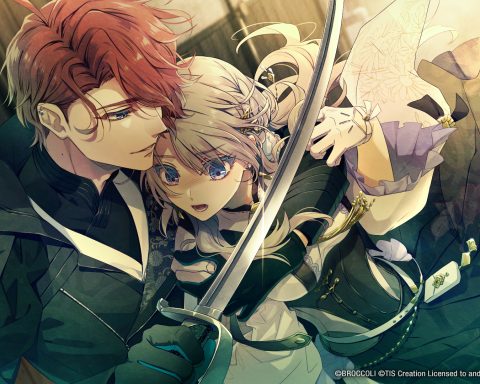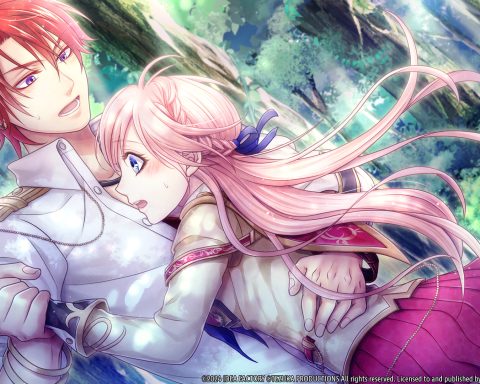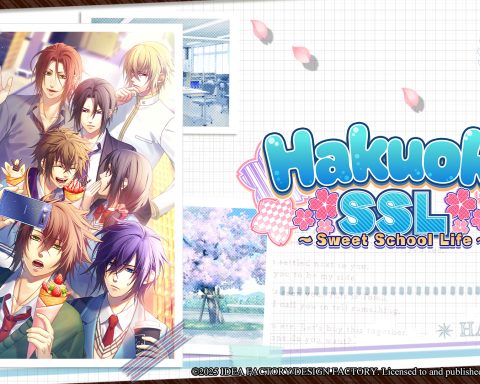We’ve seen quite a few free-to-play mobile rhythm games be re-packaged up as premium experiences and released on Nintendo Switch. Deemo, Cytus, Voez, Musynx, Lanota, and probably some others that I’m missing. As a fan of the genre, I’ve enjoyed all of these, and I enjoy Arcaea as well.
Arcaea’s biggest hook is that it features some incredibly complex beatmaps to deal with. Not only do notes come cascading down the screen to a “stave” at the bottom, like in Deemo, Voez and others, but there’s a second track too, with another set of notes appearing above that action, requiring you to split concentration across “above” and “below” play (it’s hard to describe, but the little clip below shows it in action). This complexity makes the two higher difficulty settings a solid challenge for anyone (and the highest difficulty setting will challenge even the most experienced rhythm game fan), but it’s also quite the esoteric, abstracted approach to rhythm games, and it takes a little longer for the feel of the music to come across. With most of the best pure-play rhythm games, you’ll feel like you’re playing an instrument as you tap along on the controller. With Arcaea you’re going to be too busy focused on inputs to always get that instrument feel.
What is not questionable in Arcaea is just how much content it offers. There are over 150 songs to work through in this game, and while a playlist that large inevitably means some duds (and you’re going to want to be a fan of electronica, else there are going to be a lot of duds), the overall quality of the music is excellent. The game also has a 60-chapter narrative, which is better than the typical narratives that we deal with in rhythm games, and the art is impeccable. Everywhere you look in Arcaea you’re going to see pictures of incredibly beautiful girls. These girls are your “partners” with each having a different supporting impact on the rhythm game action, and they level up as you use them more. I tend to find those kinds of things distracting since I just want to “play music” when I play a rhythm game. But they’re really pretty, and if nothing else that’s my kind of aesthetic.
Ohhhhh this game is so my aesthetic. #NintendoSwitch pic.twitter.com/k1HNqs8Vaj
— Matt at DDNet (@MattSainsb) May 19, 2021
Arcaea does show its free-to-play heritage in its progression system, however. It is, to put it mildly, a grind. There is around 20 or so songs unlocked in the first instance. To unlock more you’ve got to move across a grid by completing songs. And complete set songs and earn some in-game currency (“fragments”). And complete parts of the story mode. You’ve got many, many hours of play ahead to unlock the full music tracklist, and the developers have done that because, over in the mobile world, dropping content at such a drizzling rate is how these games make money.
I’d rather just have everything unlocked from the outset. Make players earn the narrative scenes, additional characters, and other superficial elements, fine. Look at what the Hatsune Miku games do; give players all the music upfront and then ask them to earn points to unlock swimsuits and other costumes (but mostly the swimsuits). There’s still more than enough incentive to play on to get top scores, too. Locking all the music behind arbitrary targets has nothing to do with incentivising play in a rhythm game. It’s exclusively a money-spinning trick for free-to-play games, and when I’ve paid an up-front premium, I’m less inclined to look positively on such a system. Arcaea isn’t the only one to do this (Deemo, Cytus, and others do as well), but it’s one of the more egregious, because you start out with such a thin slice that the grind hits almost immediately.
Arcaea also struggles for a sense of identity compared to what’s already available on Switch – that’s the downside to being late to an overcrowded party. Cytus and Voez already have the audio aesthetic covered, and Arcaea’s electronica offers plenty of good music, but nothing that stands out that much. Meanwhile, Lanota has lovely window-dressing art and storytelling, and as far as pretty girls are concerned… well. I think you all know about my thing for Hatsune Miku at this point. I’m of the perspective that rhythm games really need to do something different now to find a place on the Switch, whether that’s having a distinct theme (Lyrica’s celebration of Chinese poetry and culture, or Pianista’s focus on classical piano), or doing interesting things with gameplay (Sayonara Wild Hearts). Arcaea has its own flourishes, but it’s on a very standard approach to rhythm games.
There’s nothing outwardly wrong with Arcaea. The presentation is beautiful, there are some foot-tapping tracks in there, and there’s certainly a generous amount of content to enjoy. It’s just way too late to the party for something that isn’t meaningfully different to its peers. The music’s enjoyable, but not stand-out, the gameplay is too-familiar and while it does have a lot of pretty girls and that is a very nice thing, is not going to help it become a memorable, standout example of a genre that the Switch is already over-subscribed with.









